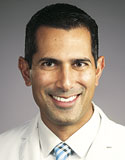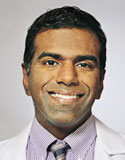By Sarah Ruth Bates, MBE, MMS Government Relations and Research Analyst
Dilemmas about how to allocate medical resources in disaster relief efforts or developing countries — which child gets medication? which wound merits a transfusion? — feel extreme. But they help highlight the reality that allocation decisions are also a routine, if less conspicuous, part of medical care delivery in the US.
Disasters force physicians to decide how best to allocate limited resources, says Nir Eyal, PhD, associate professor of global health and population at Harvard T.H. Chan School of Public Health. That same need for resource stewardship, says Dr. Eyal, “is easy to ignore in normal times in a resource-rich setting, like parts of Massachusetts.”
This realization may be familiar to local physicians who also practice in low-resource settings. “Delivering care with so few resources makes you realize how privileged we are here, and sometimes how much we do that might not really be necessary,” says Adeline Boatin, MD, MPH, an OB/GYN at Massachusetts General Hospital who also practices in Uganda (see page 1). “In the last couple of months, we’ve had a shortage of IV saline in the US, and it’s a new experience; ‘Oh, we can’t just give everybody IV fluids.’ In Uganda you’re thinking about that all the time.”
Even in the US, some allocation decisions are so routine that clinicians may not be aware of them — “when we decide whom to admit to the hospital, whom to remove from intensive care, or whether every headache justifies an MRI,” says Dr. Eyal. Every time a physician decides not to spend an extra 10 minutes with a patient who could benefit from that, he or she is allocating a scarce resource.
Choosing Wisely
How can Massachusetts physicians incorporate resource stewardship into their daily clinical practice? Vital Signs spoke with two physicians who have worked to answer that question through Choosing Wisely, an initiative of the American Board of Internal Medicine Foundation aimed at helping patients and physicians “choose care that is supported by evidence, not duplicative of other tests or procedures already received, free from harm,” and “truly necessary” (according to
ChoosingWisely.org).
Through Choosing Wisely, specialty societies identify common interventions — tests, drugs, and procedures — that are often high-cost and low-value, and issue guidelines encouraging physicians to think twice when ordering or prescribing them. The highlighted interventions “are not all bad or unnecessary,” says Dr. Ali S. Raja, MD, MBA, executive vice chair of the department of emergency medicine at MGH. “It’s more that these interventions are often overused.”

Ali S. Raja, MD, MBA
Choosing Wisely gives patients and physicians a data-driven tool for reconsidering such interventions. “These guidelines come from the professional societies,” says Dr. Raja, who is also an associate professor at Harvard Medical School. Within their practice groups, physicians share data on individuals’ clinical practice relative to the interventions highlighted by Choosing Wisely, allowing outliers to adjust their decision making.
Patient-Centered Stewardship
Is “stewardship” just a more palatable way of saying “rationing”? Actually, Choosing Wisely is a patient-centered initiative. “I think the hard part here is the framing of the conversation,” says Thomas Isaac, MD, MBA, MPH, director of health care quality at Atrius Health. “It’s not, ‘We have to stop doing this or stop doing that.’ It’s that we need to do what’s right for the patient.”

Thomas Isaac, MD, MBA, MPH
“Testing can cause negative downstream effects,” says Dr. Isaac. Imaging for an acute flare of lower back pain without major medical risk factors, for example, is widely understood to be overused. The discussion with the patient should highlight potential harm, not costs: “Patients at low clinical risk who undergo an MRI early on are much more likely to receive other excessive testing and to undergo surgery that they don’t need.”
Choosing Wisely does benefit the health care system, and society as a whole — but, Dr. Raja says, physicians use it because it helps their patients. “The metrics that I choose are always somewhat patient-centered,” he says. “How long does the patient have to wait to see you? How many of your patients can you see? Are you ordering the right tests for your patients? If I emphasized the billing or revenue it would take a lot more convincing. You have to shift the frame to something that physicians can go home and feel good about.”
